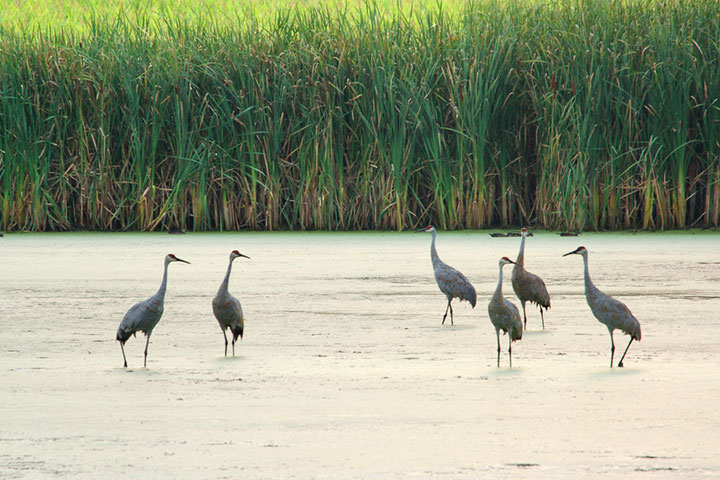Assessing information needs and developing tools for Great Lakes ecosystem management
Assessing information needs and developing tools for Great Lakes ecosystem management
Assessing information needs and developing tools for Great Lakes ecosystem management
Program: Water Center U-M Capacity Building Grants
All Water Center U-M Capacity Building Grants projects »

Photo courtesy of Michigan Sea Grant
Investigators
Catherine Riseng, U-M School of Natural Resources and Environment
Kevin Wehrly, U-M/DNR Institute for Fisheries Research
Additional Core Team Members
Robert Goodspeed, U-M Taubman College of Architecture and Urban Planning
Ed Rutherford, NOAA Great Lakes Environmental Research Laboratory
Lizhu Wang, International Joint Commission Great Lakes Regional Office
Lacey Mason, U-M/DNR Institute for Fisheries Research
Project Summary
Great Lakes resource managers commonly express a need for publically accessible habitat data and decision support tools that can be applied to a multitude of issues throughout the basin. The project team has been developing the Great Lakes Aquatic Habitat Framework (GLAHF), a georeferenced, spatial, framework for aquatic habitat data for the Great Lakes. The project will leverage investments by the Great Lakes Fishery Trust in the GLAHF and the team’s existing relationships with resource managers in the development of web-based applications and decision support systems (DSS).
The project is structured to ensure that the tools developed are useful and tailored to managers’ needs. The first step of the project is to conduct a survey, comparison, and gap analysis of existing DSS tools. The project team will then organize bi-national workshops and iterative meetings with managers across the basin to share the gap analysis, and receive input on design and implementation of tools that will be useful to support Great Lakes habitat management, restoration, and policy decisions. These workshops will be comprised of state, provincial, and federal managers from the U.S. and Canada. Feedback from these workshops will provide the basis for development of webbased tools.
This work will increase the reach of water research at U-M by providing tools that synthesize GLAHF datasets, and by developing collaborations among the Water Center, GLOS, the Institute for Fisheries Research, the Taubman College of Architecture and Urban Planning, state and federal agencies, NGOs, and various bi-national efforts across the basin.